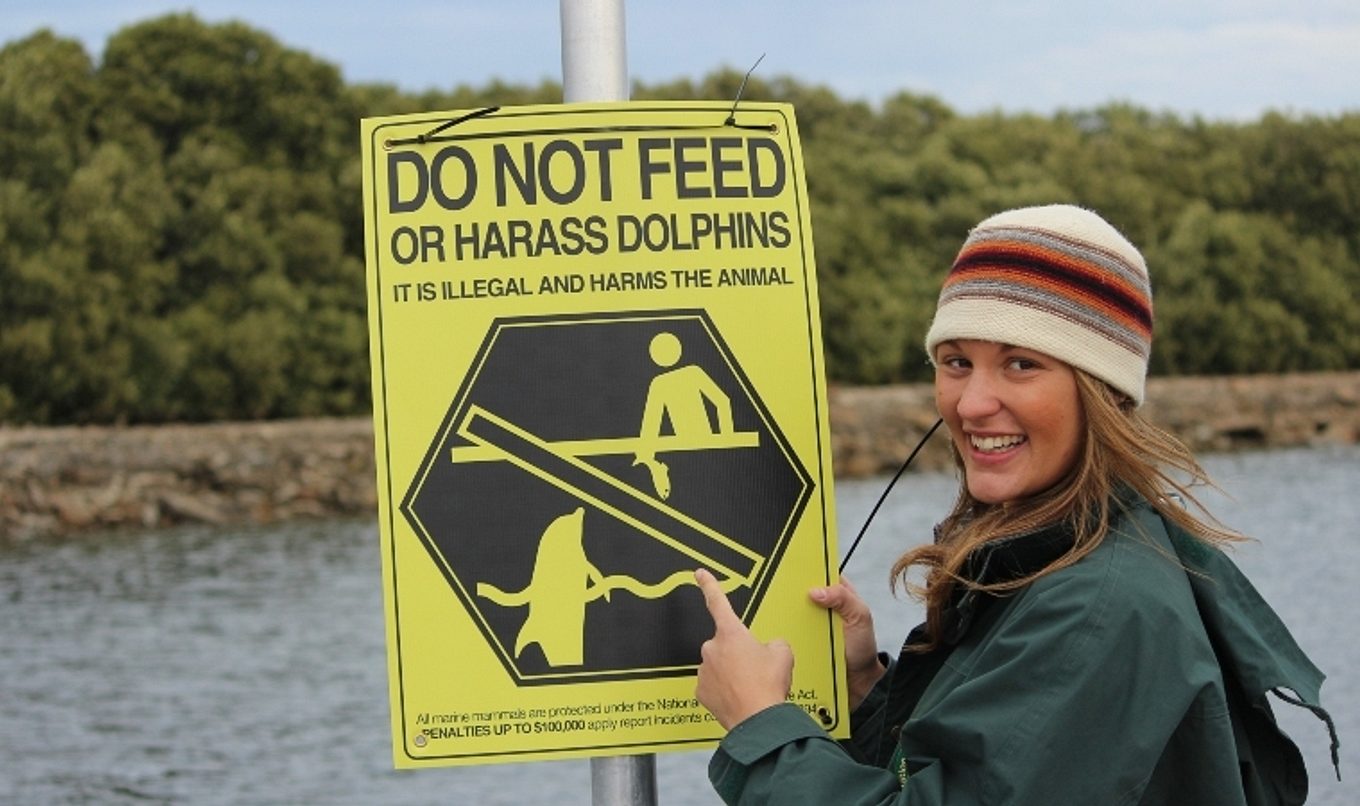Feeding wild dolphins has deadly results
Following the successful rescue of Port River dolphin ‘Doc’ to remove hooks and fishing line entanglements last week, National Parks and Wildlife Service (NPWS) are reminding people not to feed wild dolphins as it can have deadly effects.


